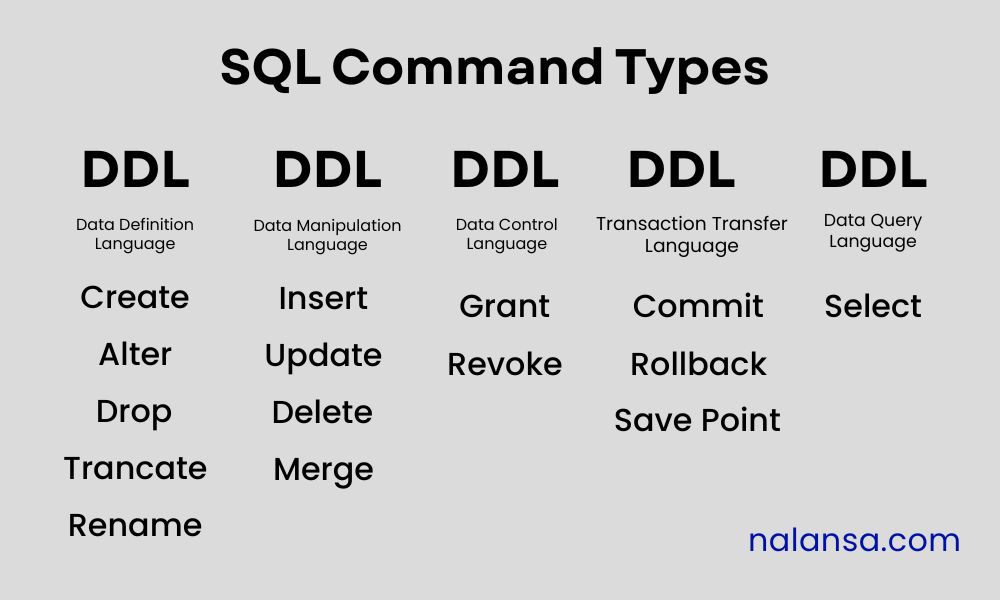So, you’ve been hearing a lot about SQL lately, and wondering about what it’s all about? Perhaps you are curious as to data analysis, in addition to having seen “SQL required” in job postings in which you thought, “Should I learn this?” — The answer is yes, plus you are in the right place!
Although learning SQL initially seems intimidating, don’t worry; this guide is designed just for beginners like you. We will break each thing down into a simple step-by-step way, so you can follow it along, even if you’ve not written a single line for code before.
This guide will provide comprehension of SQL. By its conclusion, one can use it for working with real data and appreciate its usefulness. Ready to get started? Let us dive right in and learn about SQL together!
Table of Contents
What is SQL?
SQL, short for Structured Query Language, is just a language that is used to talk to databases. Consider it as the language that you use for asking questions and for getting answers from large sets of data stored in a structured format.
Suppose your large spreadsheet contains customer information, such as names, emails, purchases, locations, and so on. Consider the difficulty of manually searching, filtering, or calculating this data. Picture having to undertake these tasks each time. That’s exactly where SQL comes within. It allows people to promptly retrieve, organize, and analyze data by means of simple commands.
For example, you can use SQL to:
- Find all customers from a specific city
- Check how many sales happened in the last month
- Update incorrect information
- Delete duplicate records
- Generate reports with total revenue, average prices, or top-selling products
SQL is widely used in business, tech, finance, marketing, and many other fields. It’s the backbone of most data analysis and reporting systems, which is why it’s considered a must-have skill for anyone working with data today.
The best part? SQL is beginner-friendly, easy to learn, and extremely powerful — making it a perfect starting point if you’re new to data or looking to build a career in the data world.
Why SQL is important?
- SQL helps you understand and use data effectively : Access and analyze large datasets to find trends, insights, and patterns.
- Used across all industries : From tech and finance to healthcare and marketing, SQL is a universal skill.
- Required in many job roles : Roles like Data Analyst, Business Analyst, Product Manager, and Software Developer all rely on SQL for working with data.
- Beginner-friendly and easy to start with : Simple syntax makes it a great first step into the world of data and programming.
- Improves decision-making : Write queries that answer real business questions and guide smarter strategies.
- Works with top data tools : Integrates with Excel, Power BI, Tableau, Python, and more.
- Future-proof your career : Data is growing fast and SQL remains one of the most important tools to manage and analyze it effectively.
How to Learn SQL for Beginners?
If you’re just starting your journey into the world of data, SQL is one of the easiest and most practical skills you can pick up. Here’s a step-by-step breakdown of how to learn SQL at the beginner level, explained in simple terms.

1. Understand What SQL Is and Why It Matters
Before jumping into queries, take a little time to understand the big picture. SQL (Structured Query Language) is the language used to communicate with databases. It helps you ask questions like “What are our top 10 customers?” or “How many sales did we make last week?”
Having a clear idea of what SQL does will make your learning smoother and more meaningful.
2. Start with the Basics
You don’t need a programming background to start SQL. Begin with simple concepts like :
- What is a database?
- What are tables, rows, and columns?
- What is a query?
These basics form the foundation of everything you’ll build later on.
3. Learn by Doing, Not Just Reading
The best way to learn SQL is by actually using it. Choose beginner-friendly platforms or tools that let you practice in real-time. Even just 20–30 minutes of practice a day can help build confidence.
Look for small projects like analyzing sales data, filtering customer lists, or checking product inventory.
4. Focus on Real-Life Use Cases
SQL makes more sense when you relate it to real-world problems. Try questions like:
- “Which product sold the most this month?”
- “How many users signed up today?” These kinds of examples help you understand how SQL is used in business environments.
5. Don’t Worry About Memorizing Syntax
It’s common to forget exact SQL keywords or functions when you’re new. That’s okay. The key is understanding the logic behind what you’re doing. As you practice, the syntax will start to feel natural.
6. Practice with Sample Data Sets
Once you know the basics, try using open datasets like employee records, e-commerce data, or student grades. Practicing on structured data will help you get comfortable with writing queries and spotting patterns.
Check out : Top 10 Free Datasets for Data Analyst Beginners
7. Stay Consistent, Not Perfect
You don’t need to master SQL in a week. Focus on consistency instead of speed. Set a simple goal like “10 minutes of SQL a day,” and build up gradually.
8. Track Your Progress and Celebrate Small Wins
Every time you write a working SQL query or solve a small challenge, count that as a win. Learning a new skill is a journey, and progress comes one step at a time.
Read Also : Big Data : The Role in Shaping Future Technology
Learning SQL is wonderful for a career or personal growth. It can help improve business intelligence or give you new skills in a database management role. The best part about SQL is its availability, and when practiced consistently, it can easily be learned by anyone without a technical background.
Acquiring the skills might be slow, at first, but the progression allows you to unlock innovative methods for data handling and analysis. It is crucial to memorize the fundamentals and practice daily to gain confidence. You can then challenge yourself with advanced topics.
Setting goals and accomplishing them along the way will help nurture one’s self-esteem. SQL is designed to help anyone, be it business professionals, aspiring data analysts, or even people trying to understand their data better. SQL is bound to change the perception of many data-driven personnel while opening a lot of employment opportunities.
Your knowledge will immensely improve, so don’t sit back and wait. Hop into SQL and get into it confidently.



